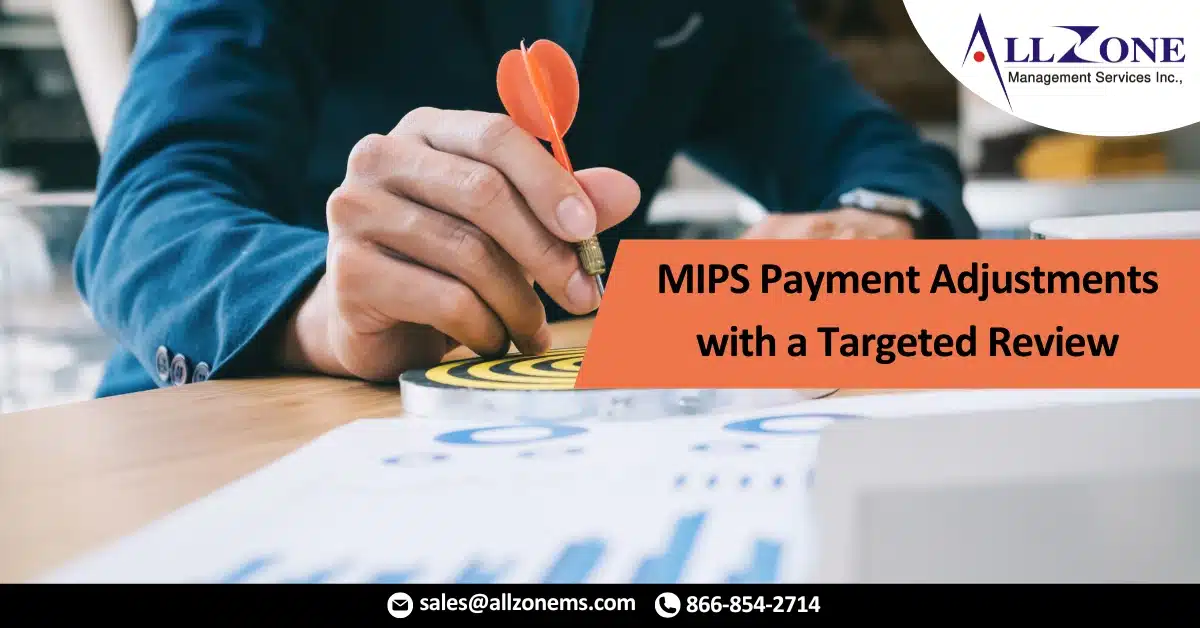Right out of the gate, Medicare Incentive-based Payment System (MIPS) adjustments were incorrectly applied to non physician services and supplies. This error is being corrected by the Centers for Medicare & Medicaid Services (CMS), but what if no one caught it? MIPS eligible clinicians and clinician groups could have improperly lost or gained considerable revenue. This incident cements the need for all MIPS eligible clinicians to take responsibility of their MIPS payment adjustments.
The time to do this is when CMS releases the previous year’s performance feedback, the year before the payment adjustment goes into effect.
For example, CMS released 2017 MIPS performance feedback in July 2018. Clinicians had until October 11, 2018, to review their feedback and submit a targeted review request to CMS if they believed an error was made. This proactive approach ensured the correct payment adjustment factor was applied to their Medicare Part B claims at the start of 2019.
This protocol won’t prevent CMS from making other payment errors, apparently, but those errors are more easily detected when clinicians monitor their performance and estimate their MIPS final score.
When To Request A Targeted Review
If a clinician or group’s MIPS final score does not match their projection, requesting CMS to conduct a targeted review is in order. Other reasons why a clinician may request a targeted review include:
- Submission issues
- Eligibility issues
- Measure(s) issues
- Alternate Payment Model (APM) scoring standard issues
How To Request A Targeted Review
Eligible clinicians, groups, and certain APM entities can access the Targeted Review Request form on the Quality Payment Program (QPP) portal, which requires an Enterprise Identity Management (EIDM) account with the appropriate user role. Third-party intermediaries, such as qualified registries, health information technology vendors, and qualified clinical data registries, can request a targeted review on a clinician or group’s behalf if authorized to do so. Authorized third-party intermediaries and certain MIPS APM entities must request CMS to send them a URL link to the form.
Targeted reviews should be requested at the same level as the data was submitted to CMS. For example, if a clinician who submitted MIPS performance data under a group’s Tax Identification Number (TIN) believes there is an error in the final score, the entire group would need to request a targeted review.
What To Expect In A Targeted Review
You will receive a confirmation letter stating CMS received your request, at which time you may be asked for documentation to support the request. This documentation must be received by CMS within 30 days of the request.
Typical requests include:
- Supporting extracts from the MIPS eligible clinician’s EHR
- Copies of performance data submitted to submitter
- QPP service center ticket numbers
- Signed contracts or agreements between a clinician and third-party
- APM participation agreements
- Partial QP election forms
Targeted review outcomes are sent via email to the submitter. These reviews cannot be appealed.
For More Information: 45737 ensure proper mips payment adjustments with a targeted review

